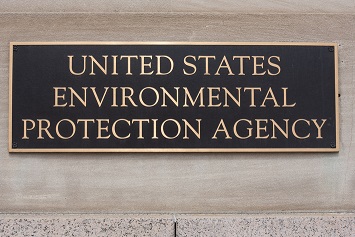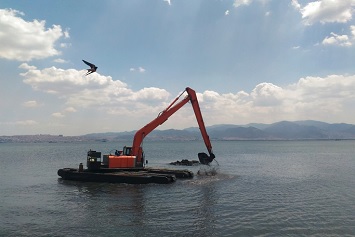In a memo, EPA Administrator Scott Pruitt has informed his regional administrators that he has directed the Office of Water to begin rulemaking to curtail the Agency’s regulations for implementing Section 404(c) of the Clean Water Act. Pruitt states that the proposal should, at a minimum, seek to eliminate the EPA 404(c) authority to prohibit discharges of dredged material to all or part of an area both before a Section 404 permit application has been filed with the U.S. Army Corps of Engineers (Corps) and after the Corps has issued the permit. In other words, EPA’s 404(c) authority—also called veto authority—would be confined to the relatively narrow time frame when the Corps is reviewing and processing the permit application.
While the existing 404(c) regulations have been in place for about 40 years, the EPA has exercised its veto authority only 13 times, 11 of which were under Republican presidents.
“This long-overdue update to the regulations has the promise of increasing certainty for landowners, investors, businesses, and entrepreneurs to make investment decisions while preserving the EPA’s authority to restrict discharges of dredge or fill material that will have an unacceptable adverse effect on water supplies, recreation, fisheries, and wildlife,” wrote Pruitt.
Pebble Mine Connection
The memo and Pruitt’s desire to amend the 404(c) regulations emerge at least in part from EPA’s involvement with the Pebble Mine, Northern Dynasty Minerals proposed project to build a massive copper and gold ore mine in the environmentally sensitive headwaters of Bristol Bay, Alaska.
EPA’s position on the mine has been fluid. In 2014, before Northern Dynasty filed its application with the Corps for a 404 permit, the Obama EPA issued a proposed 404(c) determination that would have so limited the scope of the permit, it was doubtful the project would remain feasible.
When the Trump administration took office, the EPA announced that it would begin proceedings to withdraw the proposed determination. But then in January 2018, Pruitt announced that he was persuaded by public comments that the mine would have a potentially major detrimental impact on the fishing economy of Bristol Bay, and accordingly, the proposed determination would remain in place.
While that announcement surprised observers, it did not constitute the Agency’s final position on the mine, and in retrospect and based on the current memo, it does not appear to reflect Pruitt’s complete view on the project. In the memo, the administrator notes that under a court settlement, the Agency’s final 404(c) determination may not be issued until the Corps completes its Environmental Impact Statement (EIS) or by May 2021, whichever comes first.

Concerns for Economic Growth
Regarding EPA’s existing 404(c) regulations, Pruitt states that he is concerned that the “mere potential of the EPA’s use of its section 404(c) authority before or after the permitting process could influence investment decisions and chill economic growth by short-circuiting the permitting process.”
“I am also concerned that under current regulations, the EPA could issue a final determination without the benefit of full information about the project for which a permit is sought, the proposed disposal areas, and the environmental impacts of those activities,” Pruitt continues.
Pruitt instructs the Office of Water that its proposed amendments should, at a minimum, include the following changes:
- Eliminating the authority to initiate the Section 404(c) process before a Section 404 permit application has been filed with the Corps or a state, otherwise known as the preemptive veto;
- Eliminating the authority to initiate the Section 404(c) process after a permit has been issued by the Corps or a state, otherwise known as the retroactive veto;
- Requiring a regional administrator to obtain approval from EPA headquarters before initiating the Section 404(c) process;
- Requiring a regional administrator to review and consider the findings of a final National Environmental Policy Act (NEPA) Environmental Assessment or EIS prepared by the Corps or a state before preparing and publishing notice of a proposed determination; and
- Requiring the Agency to publish and seek public comment on a final determination before such a determination takes effect.
Pruitt’s memo is here.

